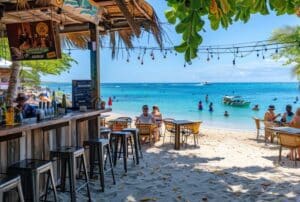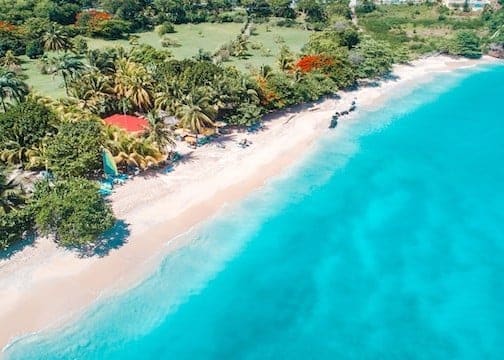Understanding Caribbean travel restrictions can be tricky. Although there are regional agreements and uniform travel policies through CARICOM and the Organization of Eastern Caribbean States (OECS), each island enforces its own entry and restriction policies. Additionally, violent crime, civil unrest, and other serious risks vary across the region, meaning Caribbean nations have differing travel advisory levels.
This guide provides a detailed view of travel restrictions in the Caribbean.
- Current travel restrictions in the Caribbean
- Caribbean travel and health insurance
- Caribbean travel advisories
- US Caribbean travel restrictions
CARICOM (Caribbean Community)
All Caribbean Community (CARICOM) member states typically allow Caribbean passport holders from other member countries visa free entry for up to six months. US, Canadian, EU, and British passport holders can travel visa free to CARICOM countries for between 30 and 180 days. The specific requirements will vary by country.
The OECS free movement agreement allows citizens of member countries to stay indefinitely in any member country, including individuals who gained Antigua and Barbuda, Dominica, Grenada, St Lucia, and St Kitts and Nevis citizenship by investment.
Under the free movement agreement, citizens can travel without a passport to Caribbean countries within the organization.
Travel insurance isn’t a strict requirement to travel to most Caribbean countries; however, it is a travel addition that is strongly recommended for visitors to the Caribbean due to potentially high out-of-pocket medical expenses, the limited infrastructure of the Caribbean healthcare system, especially in remote areas, and the possibility for trip disruptions due to hurricanes and other natural disasters.
Cuba travel requirements include travel insurance with health insurance, which is typically requested upon entry. Travelers who arrive without health insurance may be instructed to buy a government health insurance policy to gain entry.
The United States Department of State issues travel advisories for all countries to determine the level of safety for foreign visitors. The advisories assess several risk factors, including terrorist violence, organized crime, healthcare, civil unrest, and other emergency situations that can jeopardize travelers’ security.
The US State Department separates travel advisories into four risk tiers, with “1” being the lowest risk and “4” indicating the highest concern for safety.
- Level 1: Exercise normal precautions
- Level 1 with risk: Exercise normal precautions with higher security risk
- Level 2: Exercise increased caution
- Level 2: Exercise increased caution with higher security risk areas
- Level 3: Reconsider travel
- Level 3 with risk: Reconsider travel with higher security risk areas to avoid
- Level 4: Do not travel
Drug trafficking and violent crime are the primary risks in several Caribbean countries that carry Level 2 or Level 3 advisories. These concerns rarely affect tourists staying in secure Caribbean hotel compounds and tourist areas. Haiti’s Level 4 travel advisory from the US State Department sets it apart from much of the Caribbean due to severe concerns over civil unrest, violent crime, collapsed infrastructure, and a heightened risk of sexual assault.
The United States government hinted at travel restrictions affecting passengers traveling to the US from certain Caribbean nations, creating uncertainty for those seeking Caribbean immigration services.
The table below lists banned countries and those with a proposed travel ban.
Countries offering Caribbean citizenship by investment have introduced measures to address concerns that could impact travel to the United States, including introducing a regional regulator—an element of compliance crucial in the Global Citizenship Solutions Global Residency and Citizenship by Investment Report.



